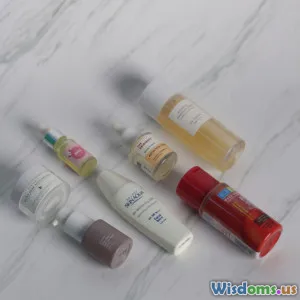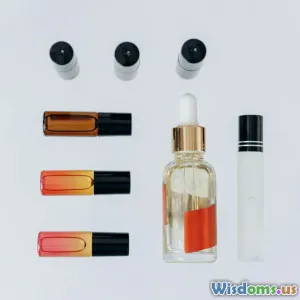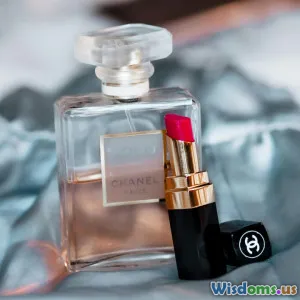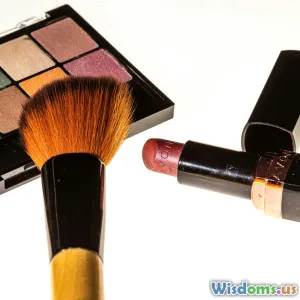
How Serums Are Shaping Skincare Routines Worldwide
10 min read Explore how serums revolutionize global skincare with potent ingredients, customizable routines, and cutting-edge formulations for radiant, healthier skin. (0 Reviews)
How Serums Are Shaping Skincare Routines Worldwide
Skincare rituals across the globe have evolved tremendously over the past decade, but one innovation reigns supreme: the serum. From humble beginnings as niche elixirs reserved for spa treatments, serums now dominate bathroom shelves and beauty counters everywhere. But what exactly accounts for their meteoric rise? How have these concentrated skincare potions become an indispensable step in daily regimes around the world? This article takes a deep dive into the science, trends, and cultural nuances shaping the global phenomenon of skincare serums.
The Serum Revolution: Origins and Rapid Growth
Serums are lightweight formulations packed with highly concentrated active ingredients designed to penetrate deeply into the skin. Unlike heavier creams or lotions, their smaller molecular weights allow serums to deliver potent doses quickly and efficiently.
Traditionally, serums were luxury items used sparingly in clinical or high-end spa settings. However, recent years have witnessed a democratization and explosion of serum varieties, fueled by advances in cosmetic chemistry and consumer demand for visible results.
Market Data Highlights
According to a 2023 report from Grand View Research, the global facial serum market size was valued at over $7 billion and is projected to expand at a CAGR exceeding 8% through 2030. This growth reflects increased consumer awareness about skincare efficacy and willingness to invest in specialized products.
Asia-Pacific leads the demand surge, particularly South Korea and Japan, where elaborate multi-step skincare rituals have long included essences and ampoules akin to modern serums. Meanwhile, the Western markets are rapidly catching up, integrating serums into minimalist routines focused on targeted concerns.
What Sets Serums Apart From Other Skincare Products?
Understanding why serums have resonated so strongly with users demands a closer look at their formulation and function.
Potency and Penetration
Serums contain a high concentration of active ingredients such as vitamin C, retinol, hyaluronic acid, peptides, and antioxidants. These molecules are specifically engineered to be stable and bioavailable, ensuring they remain effective upon application.
Their lightweight water- or oil-based compositions feature smaller molecules compared to creams or oils, facilitating deep skin absorption. For example, a typical serum delivers up to 20% pure vitamin C, which is difficult to formulate in moisturizers without compromising stability.
Targeted Treatment Benefits
Unlike multi-purpose creams, serums tend to address specific skin concerns with precision:
- Brightening and Tone Correction: Vitamin C and niacinamide serums reduce hyperpigmentation and promote luminous skin.
- Anti-aging: Retinol and peptide serums boost collagen synthesis, smoothing fine lines.
- Hydration: Hyaluronic acid serums powerfully attract and lock moisture in.
- Acne and Inflammation: Serums infused with salicylic acid or niacinamide calm flare-ups and reduce oiliness.
By isolating actives at effective doses without fillers, serums become highly versatile complementing other skincare steps.
Texture and User Experience
Serums’ silky textures appeal to consumers seeking fast-absorbing, non-greasy products amenable to layering with moisturizers and sunscreens. Their sensorial qualities enhance compliance, crucial for consistent use essential to skincare efficacy.
Global Perspectives: How Serums Integrate Into Diverse Skincare Regimens
K-Beauty Influence: A Multi-Layered Approach
South Korea’s skincare culture pioneered complex routines consisting of cleansing, toning, essences, serums, ampoules, moisturizers, and sunscreens — each step serving a distinct purpose. Their emphasis on serums stems from a philosophy of layering lightweight, potent products to achieve translucently glowing skin, often called “glass skin.”
For instance, renowned Korean brands like Sulwhasoo and Innisfree craft serums blending traditional herbal extracts with scientific actives, reflecting a union of heritage and innovation.
Western Markets: Streamlined Yet Effective
In North America and Europe, the trend has leaned towards simplicity — the “skinimalism” movement — but even minimalist routines often incorporate at least one serum targeting major concerns such as hydration or anti-aging. Brands such as The Ordinary and Skinceuticals have made serums accessible by offering affordable solutions with transparent ingredient lists.
Emerging Markets and Accessibility
In regions like Latin America and Southeast Asia, rising disposable incomes and digital connectivity facilitate access to international serum brands, while local companies capitalize on indigenous ingredients combined with modern science.
For example, Brazilian brands exploit Amazon botanicals enriched in antioxidants within serums promoting youthful skin, bridging local tradition with global trends.
Scientific Innovations Driving Serum Development
Recent breakthroughs in biotechnology and formulation techniques continuously elevate serum efficacy.
Nanotechnology and Liposomal Delivery
Advanced delivery systems like liposomes and nanoparticles improve stability and permeation of sensitive ingredients. Liposomes can encapsulate vitamin C or retinol to protect them from degradation and enable gradual release into skin cells, enhancing performance and reducing irritation.
Customizable Serums and AI Technology
Personalized skincare is becoming reality with AI-driven analysis tools recommending serum ingredients based on individual skin typing, environmental exposure, and genetic factors. Companies like Proven Skincare use algorithms analyzing thousands of variables to tailor bespoke serum formulations.
Clean and Sustainable Formulations
Consumer demand for eco-friendly, ethically produced cosmetics steers brands to develop serums avoiding harsh chemicals, opting for biodegradable packaging and responsibly sourced actives. This shift promotes not just skin health but planetary health as well.
Real-World Insights: Expert Opinions and Consumer Experiences
Dr. Rachel Park, a dermatologist in New York, states, “Serums revolutionize the way we treat skin conditions. Their molecular size allows ingredients to reach deeper layers, which is a game changer for conditions like hyperpigmentation and early aging.”
Consumer testimonials echo the clinical endorsement. A recent survey by Influenster reported 82% of serum users noticed improved skin texture and radiance within four weeks.
Social media platforms like Instagram and TikTok amplify product discoveries and tutorials, fueling a global community motivated to embrace serums as self-care essentials.
Integrating Serums into Your Routine: Practical Tips
- Patch Test: Introduce new serum ingredients gradually, especially retinol or acids.
- Layer Wisely: After cleansing and toning, apply serum before moisturizer.
- Tailor to Need: Choose serums based on your primary concern — hydration, anti-aging, acne, etc.
- Consistency is Key: Daily use is vital to see tangible results.
- Sun Protection: Many serums increase photosensitivity, necessitating diligent sunscreen use.
Conclusion: The Future of Skincare Is Serum-Driven
Serums symbolize a seismic shift in global skincare philosophies — from one-size-fits-all products to personalized, potent, and scientifically advanced formulations. Their ascendancy reflects multifaceted changes: consumers’ sophistication, technological progress, and cultural exchanges shaping beauty ideals.
By embracing serums, individuals worldwide harness targeted solutions that promise measurable improvements without excess steps or heaviness. As innovation propels these lightweight elixirs further into the spotlight, serums will undoubtedly remain at the heart of radiant, healthy skin routines for years to come.
Takeaway
Whether you’re a skincare novice or a seasoned aficionado, incorporating the right serum can elevate your regimen dramatically. Stay informed, explore options, and let serums unlock your skin’s fullest potential in this era of tailored beauty.
References and Further Reading:
- Grand View Research, "Facial Serums Market Report", 2023
- Dermatology Times, “Serums And Their Targeted Benefits,” 2022
- Proven Skincare official website
- Influenster Consumer Survey, 2023
- Sulwhasoo Brand Philosophy
Rate the Post
User Reviews
Popular Posts

















